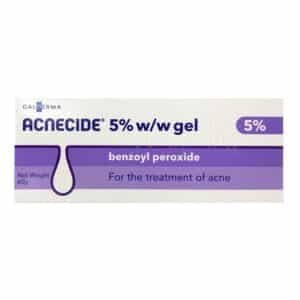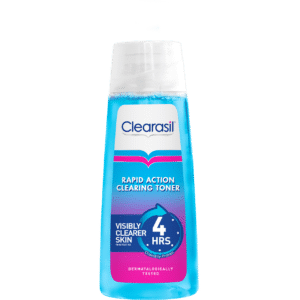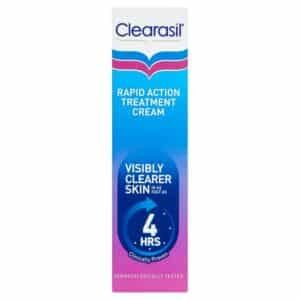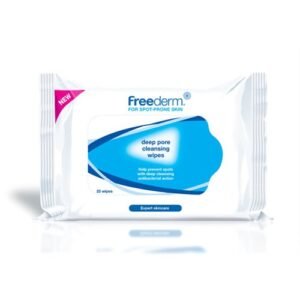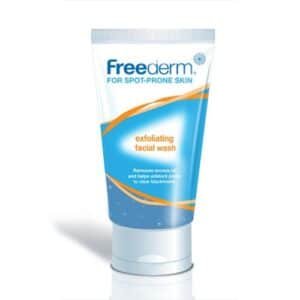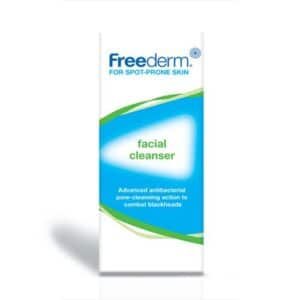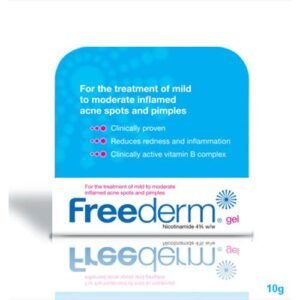Acne causes spots that appear most commonly on the face but also back and chest, and some sufferers may have greasy and shiny skin.
Acne can be a symptom of a serious medical condition, such as polycystic ovary syndrome or rosacea. If this is suspected, then you should speak to a pharmacist or doctor.
Acne can cause different types of spots:
• Pustules – raised, red spots containing pus which may burst. It can be seen as a yellow head.
• Papules – also known as pimples. They are raised, red spots that do not have a visible white or yellow head and may feel harder than pustules.
• Blackheads – these have brown or black centres, often mistaken as dirt.
• Whiteheads – these have white centres and may be firmer than blackheads.
Moderate to severe cases of acne require antibiotic treatment prescribed by a doctor, however, mild acne can be treated with topical OTC products.
1) Benzoyl peroxide (e.g. Oxy10, Quinoderm cream) reduces bacteria and removes dead cells from the skin.
2) Nicotinamide (e.g. Freederm Treatment Gel, Nicam Gel) is an anti-inflammatory used to tackle inflamed acne spots.
3) Salicylic acid and salicylates (e.g. Acnisal) promote shedding of the cells from the skin’s surface.
4) Antiseptics/Antimicrobials (e.g. Quinoderm Face Wash, Clearasil Conditioning Cream Wash) inhibit the growth and effect of bacteria on the face.
Refer to the websites below for more information and to patient information leaflets of each product to check if they are suitable for you.
Signposting:
www.nhs.uk/conditions/acne/
www.nhsinform.scot/illnesses-and-conditions/skin-hair-and-nails/acne
www.britishskinfoundation.org.uk
Spots & Acne
Showing 1–10 of 22 results
-
Athletes Foot, Bites & Sting relief, Foot Care, Skin Care, Skin Conditions, Spots & Acne, Travel and Suncare
Care Tea Tree Oil Cream – 25g
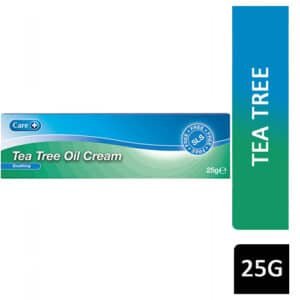 Athletes Foot, Bites & Sting relief, Foot Care, Skin Care, Skin Conditions, Spots & Acne, Travel and Suncare
Athletes Foot, Bites & Sting relief, Foot Care, Skin Care, Skin Conditions, Spots & Acne, Travel and SuncareCare Tea Tree Oil Cream – 25g
Care Tea Tree Oil Cream – 25g Care Tea Tree Oil Cream is a simple, non-greasy, perfume-free cream, which is easily absorbed and suitable for most skin types.
SKU: fa-365-7537


